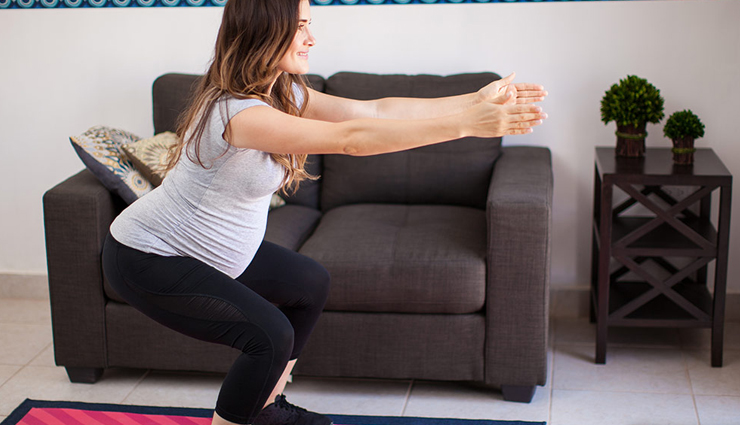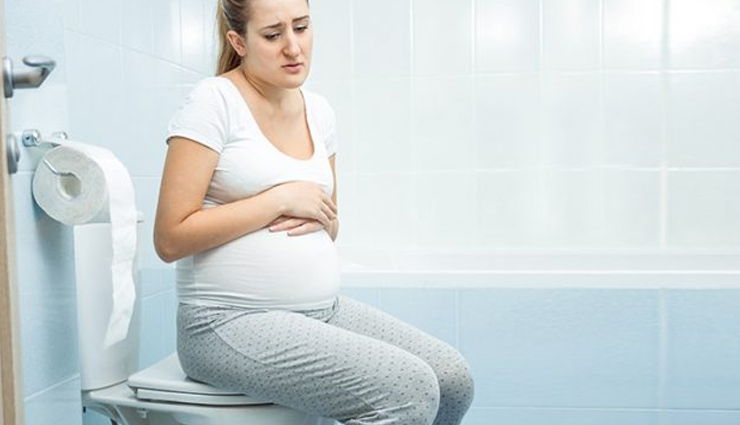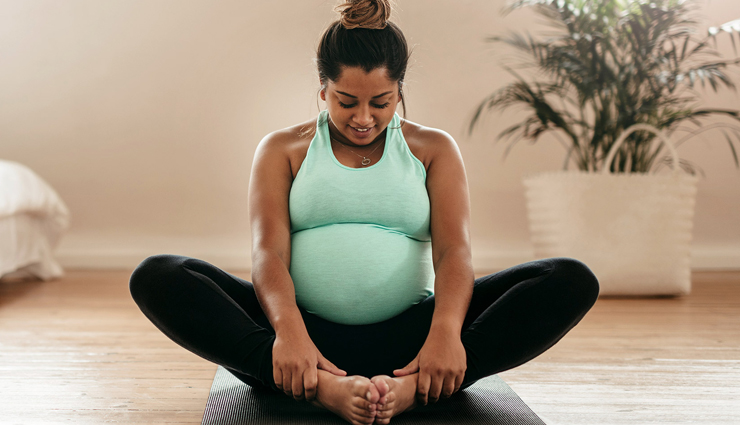- Home›
- Healthy Living›
- 6 Amazing Health Benefits Of Exercising During Pregnancy
6 Amazing Health Benefits Of Exercising During Pregnancy
By: Kratika Mon, 07 Nov 2022 5:23:43

Pregnancy brings with it several concerns regarding day-to-day activities, one of which is exercising. And whether you’re an exercise enthusiast or simply like staying fit with regular exercise, there’s a good chance your loved ones have advised you to avoid hitting the gym until childbirth. However, keeping up with exercise can actually give you a host of benefits, provided you’ve got your gynecologist’s approval. We’ve listed them out for you below.

# Keeps Your Weight In Check
Although gaining weight during pregnancy is important, it’s important to stick to the recommended amount so as to avoid being overweight and giving way to pregnancy-related complications. These complications include the risk of having high blood pressure, gestational diabetes, and other heart conditions.
Your little one may also suffer from issues related to obesity and diabetes later on in life. So, be sure to consult a professional and stick to your exercise regime along with your diet chart. However, if you are at risk of pre-term birth, do talk to your gynecologist about gentler options.

# Fights Fatigue And Improves Sleep
A lot of pregnant women experience extreme tiredness during their first and third trimesters. And if you’re generally an active person, it might get frustrating to have to sleep through most of your day. To make things worse, some women also have trouble sleeping during the first weeks of pregnancy, besides nausea and vomiting.
This is a normal part of pregnancy and is a signal from your body to slow down and give yourself the time to adjust to the changes it is going through. Primarily, the tiredness comes from hormonal changes, especially progesterone which rises sharply in the first trimester.
Besides this, as blood volume increases to supply the developing placenta and fetal circulation, your heart pumps faster and stronger. This results in faster pulse and breathing rates. Fatigue in the third trimester could be attributed to low iron levels.

# Improves Posture And Reduces Pain In The Back And Joints
Carrying a little one in your belly puts pressure on your spine and legs. And the pain you might be experiencing could be related to these physical changes that happen during pregnancy as well as hormones, changes in the center of gravity, and worsened posture. Unfortunately, it typically gets worse as pregnancy progresses. One way to relieve this pain is to do back-strengthening exercises and yoga stretches that aim at your back and joints. However, be sure to maintain good posture throughout so as to avoid any injuries and to ensure you train your body to maintain good posture throughout.

# Relieves Constipation
During pregnancy, your body produces more of the hormone progesterone, which is a muscle relaxant that prepares your body to adjust to the growing size of your baby by loosening up smooth muscles, including the ones in the digestive tract. This causes food to pass through the intestines more slowly, resulting in constipation. Besides this, iron supplements in high doses can also worsen constipation. You can relieve this by exercising regularly and consuming a fiber-rich diet.

# Reduces Stress
Pregnancy comes with a fair share of stress and anxiety. And while mild stress isn’t harmful, prolonged stress can lead to an increased risk of miscarriage, low birth weight of the child, shorter gestation, preterm birth, and mood disorders in the child later on. Exercise boosts the level of serotonin and endorphins in your brain, which help improve your mood.

# Shortens The Duration Of Labor
Engaging in physical exercise regularly during pregnancy has been found to result in a shorter initial stage of labor. This is because exercise increases the circulation of the chemical norepinephrine in the body, which in turn increases the frequency and strength of contractions of the uterus. As a result, there is bound to be a lesser need for external intervention and fewer signs of fetal compromise during labor.





